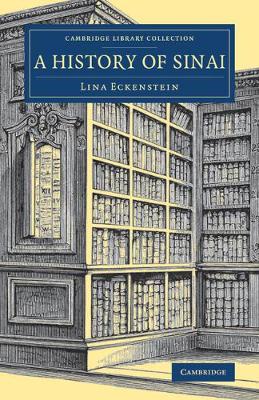Cambridge Library Collection - Archaeology
1 total work
The feminist, medievalist and political theorist Lina Eckenstein (1857–1931) spent the excavation seasons from 1903 to 1906 working with Flinders Petrie (whose wife Hilda was a close friend) at Saqqara, Abydos and elsewhere. This 1921 publication was inspired by her experiences at the site of Serabit in the Sinai peninsula (Petrie's account of the excavation is also reissued in this series). Eckenstein describes it as a 'little history which will, I trust, appeal to those who take an interest in the reconstruction of the past and in the successive stages of religious development'. The narrative begins in the prehistoric period, suggesting that the inhospitable landscape (caused by ancient deforestation) and climate dissuaded large-scale permanent settlement until the first hermit and monastic communities of the Christian era (although the Egyptians had been drawn there by resources of turquoise and copper), and continues down to the nineteenth century.
